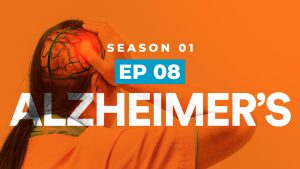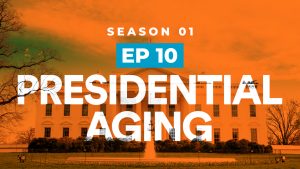How does hearing loss change the brain and contribute to cognitive decline?
The human capacity to hear is incredible. In milliseconds, sound vibrations are transformed into mechanical energy, then sensorineural signals, and then, in our brains, a universe of meaning and memory.
When that sense begins to fade, either due to aging or because of causative damage, our brains can become understimulated, potentially leading to the onset of neurodegenerative diseases like Alzheimer’s.
But, with accessibility research, technology, and policy continuing to strengthen and converge, the future promises to be brighter for everyone experiencing hearing loss.
In this episode of ‘YOUR BRAIN ON…’, we discuss:
- The different kinds and causes of hearing loss
- The relationship between aging and hearing loss
- The neurological distinction between ‘hearing’ and ‘listening’
- The recent groundbreaking studies which have made the link between hearing loss and cognitive decline clearer than ever
- How associated conditions like tinnitus impact the brain
- What’s coming next in hearing aid technology
This episode, we’re joined by:
DR. FRANK LIN, Director of the Cochlear Center for Hearing and Public Health at Johns Hopkins, who headed major research into how hearing loss contributes to increased risk of neurodegenerative disease.
DR. DOUGLAS BECK, renowned audiologist and co-host of the Hearing Matters podcast, who talks about the past and future of hearing aid devices, how to protect your hearing, and why listening — not hearing — is a whole-brain event.
DR. KRISTIN BARRY, researcher and tinnitus expert, who breaks down the various types of tinnitus and explains how the effects of tinnitus can be observed in the brain.
Links
Dr. Frank Lin
Dr. Douglas Beck
Dr. Kristin Barry











